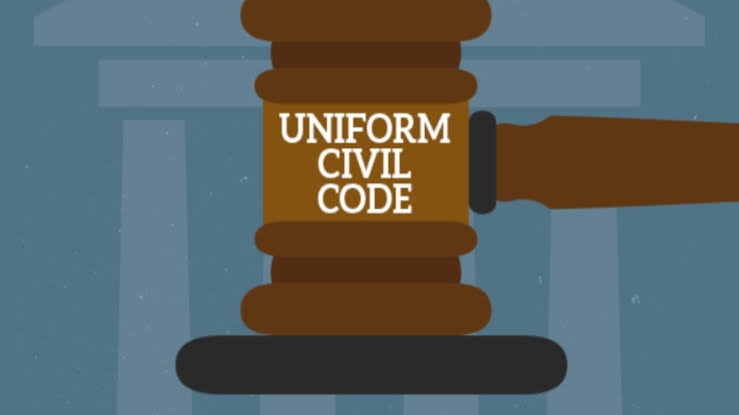75 years of Independence, UCC not implemented yet; Why?
The framers of the Constitution envisioned the UCC as a means to foster national unity and social cohesion, transcending religious barriers that perpetuated inequality. However, despite this progressive vision, successive governments have hesitated to take the bold step of implementing the UCC, primarily due to political expediency and fear of loosing their minority vote banks

The Uniform Civil Code (UCC) has been a topic of heated debate in India for decades, yet its implementation remained a distant dream. However, the Indian Government led by Prime Minister Narendra Modi is considering the introduction of Uniform Civil Code (UCC) Bill during the monsoon session of Parliament.
As mentioned earlier in the first part of the article, Uniform Civil Code (UCC) refers to a set of common personal laws that would apply to all citizens of a country, regardless of their religion or faith, it aims to replace different personal laws based on religious practices and customs, ending all the biases of the society constantly ignored by the previous governments; With a uniform set of laws governing matters such as marriage, divorce, inheritance, and adoption.
The concept of a Uniform Civil Code is often associated with countries that have diverse religious and cultural communities like India. The objective behind implementing a UCC is to promote gender equality, social justice, and national integration by ensuring that all citizens are subject to the same set of laws and principles.
Despite of such epitome benefits to the society and nation, the reluctance to implement the UCC has been deeply ingrained in the Indian political landscape, perpetuating a fragmented society and denying citizens the right to a truly secular and equitable legal system.
The framers of the Constitution envisioned the UCC as a means to foster national unity and social cohesion, transcending religious barriers that perpetuated inequality. However, despite this progressive vision, successive governments have hesitated to take the bold step of implementing the UCC, primarily due to political expediency and fear of loosing their minority vote banks.
Political Exploitation and Vote Bank Politics
One of the primary reasons for the failure to implement the UCC has been the cynical practice of vote bank politics. Political parties have been apprehensive about losing the support of certain religious communities by supporting a common civil code. They have consistently chosen to appease religious leaders and cater to the whims of minority communities rather than uphold the principle of equality before the law, leading to communal divisions and hindered India’s progress towards a truly inclusive society.
Misconstrued Notions of Secularism
Ironically, in the name of secularism, the Indian state has perpetuated a system that grants special privileges to religious communities in personal matters. The argument often put forward against implementing the UCC is that it would infringe upon the rights of religious minorities. However, true secularism should mean equal treatment of all citizens, irrespective of their religious beliefs. By maintaining multiple personal laws, the state has allowed religious orthodoxy to supersede the principles of justice and gender equality.
Obstacles to Gender Equality
Personal laws of different religious communities often discriminate against women, denying them the rights to equal inheritance, divorce, and maintenance. The inability to guarantee gender justice through a uniform legal code undermines the progress of women in Indian society and hampers the nation’s development as a whole.
However, It has been deeply argued by the left propagandists and opposition parties that implementing the UCC could lead to social unrest and religious conflicts. This failure of their to implement the Uniform Civil Code in India is a testament to the prevailing short-sightedness.
A Uniform Civil Code will not only unify the diverse population but also ensure that all citizens are treated fairly, without discrimination based on religion or gender. The implementation of the UCC is not just a legal reform; it is a step towards building a more harmonious and inclusive India for generations to come.

contemplating society and politics through cultures


